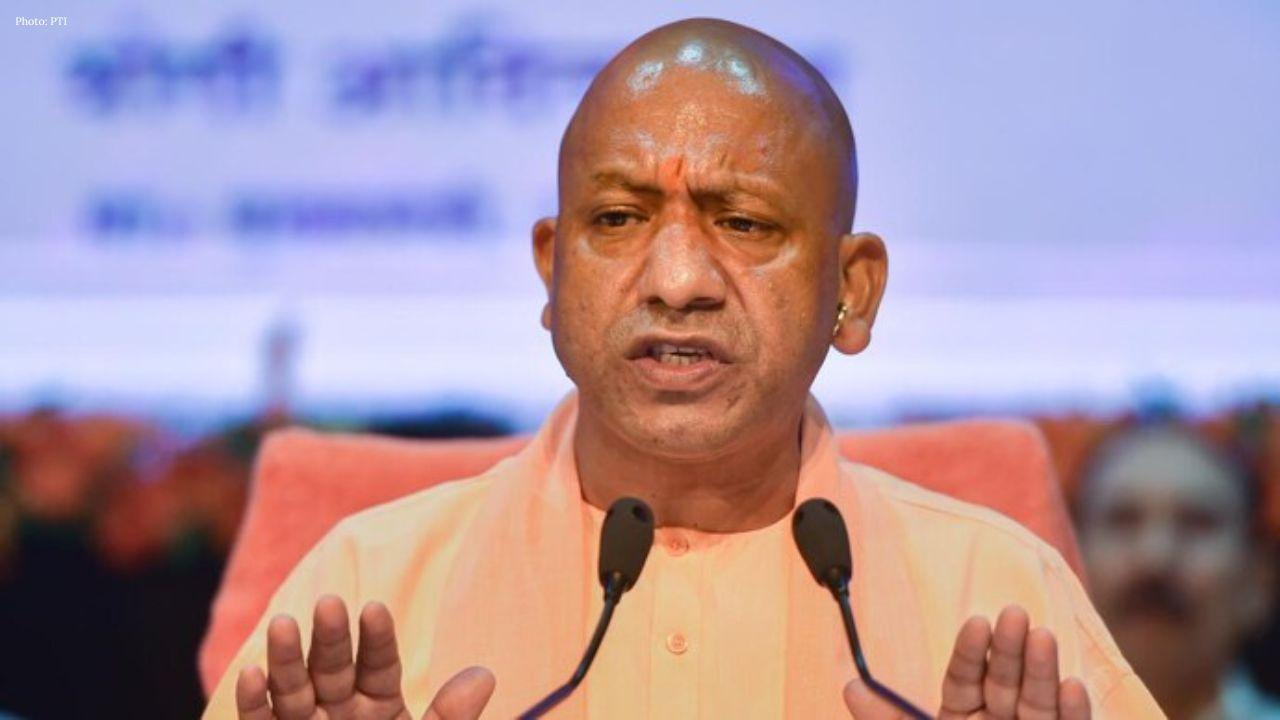You have not yet added any article to your bookmarks!

Join 10k+ people to get notified about new posts, news and tips.
Do not worry we don't spam!

Post by : Anis Farhan
In the digital era, personal and sensitive information is being generated, stored, and shared at unprecedented volumes. From social media platforms and e-commerce sites to healthcare records and financial transactions, vast amounts of data are processed daily.
India, with its booming digital economy and rapid adoption of online services, faces significant challenges in protecting this data. Incidents of data breaches, unauthorized sharing, and cyberattacks have raised public concern, highlighting the need for robust legal frameworks and effective enforcement mechanisms.
While the Personal Data Protection Bill (PDPB) has been proposed and revised over the years, India’s current data privacy landscape is still evolving. Awareness among citizens remains limited, and many organizations struggle to comply with best practices, leaving gaps that can be exploited by malicious actors.
India’s data protection regime is primarily governed by the Information Technology Act, 2000, and its rules, which address sensitive personal data. However, these laws were drafted in an era before widespread digitalization, making them inadequate for today’s challenges.
Key limitations include:
Fragmented Legislation: Existing laws cover specific sectors but lack a comprehensive, uniform framework.
Limited Enforcement: Regulatory authorities have limited powers, and penalties are often insufficient to deter violations.
Ambiguous Definitions: Terms like “personal data” and “sensitive data” are not clearly defined, leading to inconsistent interpretation.
Weak Consent Mechanisms: Users often provide consent without fully understanding the implications, reducing meaningful control over their data.
The absence of clear, enforceable standards leaves gaps in protection, exposing individuals and businesses to cyber risks and undermining trust in digital services.
The Personal Data Protection Bill (PDPB) seeks to create a comprehensive framework for data privacy in India. Key provisions include:
Data Localization: Certain personal data must be stored and processed within India, enhancing government oversight.
Consent-Based Processing: Organizations must obtain explicit consent for data collection and use, ensuring transparency.
Rights for Individuals: Citizens would gain rights to access, correct, and erase personal data, as well as withdraw consent.
Accountability Mechanisms: Data fiduciaries (organizations handling data) are responsible for compliance and reporting breaches.
Penalties for Non-Compliance: Significant fines and sanctions are proposed for violations.
While the PDPB represents a major step forward, critics point out challenges, including overreach, compliance burdens, and potential conflicts with global data transfer requirements. Balancing individual privacy with economic and technological growth remains a key challenge for policymakers.
Even with reforms, gaps persist:
Limited Awareness Among Organizations: Many small and medium enterprises lack knowledge of data protection obligations, resulting in non-compliance.
Insufficient Technical Infrastructure: Organizations may lack secure systems, encryption tools, and trained personnel to implement privacy standards effectively.
Enforcement Challenges: Regulatory authorities require resources, expertise, and streamlined processes to monitor compliance and impose penalties.
Cross-Border Data Issues: Global data flows complicate enforcement and require alignment with international standards, such as GDPR.
Public Understanding: Users often remain unaware of their rights, consent implications, and data-sharing risks, limiting meaningful engagement.
Addressing these gaps requires coordinated action across government, industry, and civil society, with a focus on education, infrastructure, and effective oversight.
Awareness is crucial for data privacy. Citizens must understand how their personal data is collected, stored, and used. Without informed participation, even the most stringent laws may fail to protect individuals.
Educational campaigns, media coverage, and digital literacy programs can help individuals make informed choices, recognize phishing and fraud, and assert their rights under the law.
Workshops for businesses, employees, and startups ensure that organizations adopt best practices in data management. Public engagement creates a culture of accountability, ensuring that privacy is respected at all levels of the digital ecosystem.
Technology itself can provide solutions to privacy challenges. Tools like encryption, anonymization, and secure authentication systems protect data from unauthorized access.
Blockchain technology offers decentralized data storage and verification, reducing reliance on centralized systems that are vulnerable to breaches. Artificial intelligence can monitor networks for anomalies and potential violations, enabling proactive protection.
At the same time, emerging technologies pose new risks. AI-based profiling, facial recognition, and behavioral tracking can infringe on privacy without strict safeguards. A combination of technological safeguards and legal frameworks is essential to protect personal information effectively.
Data is a critical economic resource. Protecting privacy enhances trust in digital services, encouraging adoption of online banking, e-commerce, healthcare platforms, and other services.
Conversely, inadequate protection can undermine economic growth. Data breaches erode consumer confidence, invite regulatory sanctions, and damage brand reputation. Companies that prioritize data privacy gain a competitive advantage, attracting customers who value security and transparency.
Global trade also depends on privacy compliance. Countries with robust data protection frameworks are more likely to engage in cross-border digital transactions, investments, and partnerships. India’s regulatory clarity can influence its competitiveness in the global digital economy.
The European Union’s General Data Protection Regulation (GDPR) sets a benchmark for data privacy, emphasizing user consent, transparency, and accountability. Countries like Singapore, Australia, and Canada have implemented similar frameworks adapted to local contexts.
India can learn from these examples by:
Establishing clear standards for consent and data handling.
Creating independent regulatory authorities with strong enforcement powers.
Promoting harmonization with international standards to facilitate cross-border data flows.
Encouraging industry collaboration and certification programs to maintain trust and compliance.
Aligning with global best practices while addressing local realities ensures that India protects citizens while fostering innovation and economic growth.
Implementing data privacy reforms in India faces several challenges:
Balancing Privacy and Innovation: Strict regulations may limit business innovation or slow digital services deployment.
Ensuring Equity: Small businesses may struggle with compliance costs, creating disparities in enforcement.
Rapid Technological Change: Laws must adapt to emerging technologies, including AI, IoT, and cloud computing.
Behavioral and Cultural Factors: Public attitudes toward privacy vary, requiring awareness campaigns that are culturally sensitive and engaging.
Enforcement Across Sectors: Coordinating oversight across government, private sector, and informal industries is complex but essential.
Addressing these challenges requires a phased, adaptive, and collaborative approach that engages all stakeholders in the digital ecosystem.
India’s path toward robust data privacy involves multiple strategies:
Legislative Strengthening: Finalize and implement comprehensive data protection laws, clarifying definitions, rights, and obligations.
Regulatory Empowerment: Equip authorities with the necessary resources, expertise, and autonomy to enforce compliance effectively.
Public Education: Launch widespread campaigns to enhance understanding of privacy rights, digital hygiene, and safe online practices.
Technology Adoption: Encourage organizations to adopt secure systems, encryption, and privacy-enhancing tools.
International Collaboration: Harmonize standards with global frameworks to facilitate trade, investment, and technological collaboration.
Continuous Review: Ensure that laws and policies evolve alongside technological and social changes, maintaining relevance and effectiveness.
A combination of legal clarity, technological safeguards, public engagement, and effective enforcement can ensure that India’s data privacy landscape is both secure and dynamic.
Data privacy is central to trust, economic growth, and individual rights in India’s digital age. Gaps in legislation, limited public awareness, and technological challenges leave personal information vulnerable to misuse.
Reforms like the Personal Data Protection Bill provide a roadmap for comprehensive protection, emphasizing consent, accountability, and transparency. However, successful implementation requires cooperation between government agencies, businesses, civil society, and citizens.
By combining legal safeguards, technological solutions, and education initiatives, India can build a robust privacy ecosystem. Protecting personal data is not merely a regulatory requirement; it is essential for empowering individuals, fostering innovation, and maintaining confidence in the country’s digital future.
This article is intended for informational and educational purposes only. Readers and organizations should consult legal experts and official guidelines before making decisions regarding data privacy, compliance, or technological implementation.










Thai AirAsia Targets Growth Through China & Long-Haul Routes
Thai AirAsia aims 6-9% revenue growth in 2026 expanding domestic flights and new international route

India Ends Silent Observer Role Emerges Key Player in West Asia
From passive energy buyer to strategic partner India’s diplomacy in West Asia now commands trust inf

Indian Students Stuck In Iran Amid US-Iran Tensions And Exam Worries
Rising US-Iran tensions leave Indian students stranded, fearing missed exams could delay graduation

India Says J&K Budget Exceeds Pakistan’s IMF Bailout
India slammed Pakistan at UNHRC, stating J&K’s development budget exceeds Pakistan’s IMF bailout and

UP CM Holds Talks With Ex Japan Economy Minister in Tokyo
Yogi Adityanath met former Japan economy minister Nishimura Yasutoshi in Tokyo to boost UP-Japan coo

Hiroshima Teacher Arrested for Alleged Sexual Assault of Minor
A 37-year-old high school teacher in Hiroshima was arrested on suspicion of sexually assaulting a te